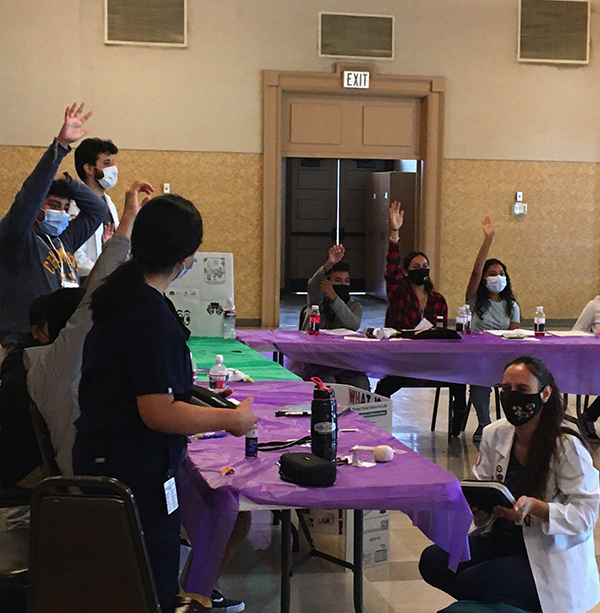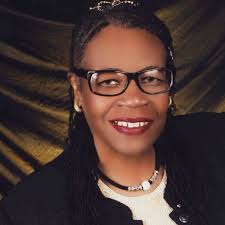By Darlene Donloe
Contributing Writer
For as long as she can remember, Nancy Mintie has had a thing about helping people. She doesn’t know where it comes from, but it started when she was a youngster.
“It’s always been there,” said Mintie, who grew up in Southern California. “As a child, my mother would ask me what I wanted to be when I grow up. My response was, I want to teach poor children in Yosemite.
“I love nature. But I also had a heart for people struggling in poverty. We don’t have to have poverty. We could eliminate poverty if we really wanted to. That has always been with me. This is not right. People don’t have to suffer. We have to change this.”
And change it she did.
In 2000, Mintie founded Uncommon Good with a mission to break the intergenerational cycle of poverty and to work for the restoration of the planet.
She believes those two goals are intertwined since the alleviation of poverty depends upon having healthy Earth with enough resources to support everyone.
Uncommon Good accomplishes those goals by helping underprivileged children succeed in school and go to college, by supporting young doctors who are bringing health and wellness into underserved communities, and through a variety of environmental activities.
Over the past 18 years, Uncommon Good has grown into an education, health and environmental success story, helping thousands permanently break the cycle of poverty by attaining a college education, leadership skills and better health.
“Uncommon Good grew out of my other company, which was the Inner City Law Center in Skid Row in Los Angeles,” said Mintie, who is also a lawyer. “It was a legal and social services center for the homeless and for poor families living in slum housing in Los Angeles. There we advocated for the homeless and we also represented families living in slum housing. I was part of a coalition of lawyers who launched a lawsuit on behalf of the unhoused in the country.”
Mintie studied law because she wanted to “help solve human suffering.”
“I did that for about 20 years,” she said. “Then I noticed it was difficult once someone was homeless and ended up on Skid Row to help them transition back into society. I became interested in how to stop that process from beginning in the first place.”
Mintie, a married mother of one daughter, said while working in slum-housing litigation, she began to see some troubling situations.
“In slum housing litigation, we would win millions of dollars for families who had been injured in these buildings,” she said. “A few years later, families would come back and were in another slum because they had lived off the money until it ran out, but then no one in the family had the education to get a job that would keep them above the poverty line, so back down they went.”
That’s when Mintie came up with a way to “fix it.”
“When we win a case, we will put some of the money aside for a college education for the children so they can break that intergenerational cycle of poverty through education,” said Mintie, who attended Loyola Marymount on a music scholarship before heading to Cal State Dominguez Hills to study political science and UCLA to attend law school.
“The goal was to break the cycle of poverty. Quickly I realized that the money wasn’t college money. It was diaper money. It was a lesson to intervene earlier in the lives of these kids to change the trajectory. “Young people coming out of law school could no longer go to Skid Row and start from scratch, as I had done, because of the amount of debt they were having coming out of school,” Mintie said. “I became concerned about who was going to carry on the work. All these things led to the creation of Uncommon Good.”
Uncommon Good works with the children of poor families who are in the fourth grade. Each child is given a mentor, educational enrichment, college help and support for their families including an urban agricultural program where organic food is grown and distributed, free of charge, to families in the program. The families also are given parent education and leadership opportunities.
“We want to get the kids on the trajectory to college,” said Mintie. “It has worked. We’ve done it. One hundred percent of our young people go on to college.”
Mintie, 67, also started a program for young people who want to go back into their communities to help.
“We help them pay off their debt and be able to take jobs within the community,” said Mintie, who has received many awards including being honored by former President Jimmy Carter on Capitol Hill in Washington, D.C. She also was recognized by the National Caring Institute and Oprah Winfrey’s Angel Network “Use Your Life Award.”
She started a similar program to support doctors.
“Young doctors are also coming out of school with too much debt,” she said. “We help doctors repay their school loans so they can go back into the community and work in community clinics. Right now we are supporting about 150 doctors in San Bernardino and Los Angeles counties.
“We give them loan repayment assistance so they can apply to pay off their loans. Some of the young people applying to the doctor program have more than $800,000 in school loans. Imagine that. No wonder they can’t afford to go into low-paying jobs in the medical field to help the community.
Uncommon Good’s Farm Program, which was started in 2009, is a community garden that grows 22 tons of food a year.
“We hired the parents of the children in our education community to grow organic food at school sites, churches, Jewish temples, anywhere we can find a plot of land that people let us use,” she said.
Mintie said Uncommon Good also has the first of its kind mental health program in the community.
“Historically, the two hardest kinds of health care to get [are] mental and dental,” she said. “We were lacking in mental health. We brought this program in that has had trial runs in India and Gaza and Mexico City, but never in the U.S.
“It provides high-quality training in cognitive behavioral therapy to people from the community who then turn around and become health providers in their community. This started in 2021. It’s a highly effective short form of therapy to show people how not to be the victim of their negative thoughts and emotions. It’s mental care. It helps you identify those emotions and reject them and replace them with positive thoughts. People then turn around and become providers.”
Other innovative programs include addressing learning disabilities and dyslexia in low-income student communities.
“Statistically, one in five students are learning disabled and most [of them] are dyslexic,” Mintie said. “They aren’t going to learn how to read the way it’s currently being taught in our schools. Now we are working with schools to get them the proper reading instruction.
“Dyslexic students are not dumb, they just learn differently. This is a social justice issue.”
While Mintie is proud of the program, she’s equally happy for the organization to be housed in a Whole Earth Building.
“We built this earth bag building by hand with dirt [and] earth,” she said. “The first in the world people come from all over the world to see it. It’s groundbreaking. In 2013, on Earth Day, we moved in. It took two years to build. We wanted to show this kind of building that is safe and ecologically friendly could be built anywhere. We wanted to prove to people the ability to house themselves safely in a way that is good for the Earth.”
At the end of the day, Mintie said she has learned “it’s true that in giving you receive.”
“Making a Difference” is a weekly feature profiling organizations that are serving their communities. To propose a “Making a Difference” profile, send an email to newsroom@wavepublication.com.
Darlene Donloe is a freelance reporter for Wave Newspapers who covers South Los Angeles. She can be reached at ddonloe@gmail.com.












